
Qsita M 100mg/500mg Tablet SR
Manufacturer
HBC Lifesciences Pvt Ltd
Salt Composition
Sitagliptin (100mg) + Metformin (500mg)
Key Information
Short Description
Qsita M 100mg/500mg Tablet SR is a combination medicine used to control high blood sugar levels in people with type 2 diabetes mellitus.
Dosage Form
Tablet SR
Introduction
Qsita M 100mg/500mg Tablet SR is a combination of two medicines, sitagliptin and metformin, that help control high blood sugar levels in people with type 2 diabetes mellitus. This medication helps prevent serious complications of diabetes such as kidney damage and blindness and may reduce the risk of heart attack or stroke. It is important to take this medicine as prescribed by your doctor, along with maintaining a healthy diet and regular exercise. Monitor your blood sugar levels regularly while on this medication. Consult your doctor if you experience any severe side effects or have concerns about its use during pregnancy or breastfeeding.
Directions for Use
Take this medicine in the dose and duration as advised by your doctor. Swallow it whole without chewing, crushing, or breaking it. It is to be taken with food.
How it works
Qsita M 100mg/500mg Tablet SR is a combination of sitagliptin and metformin. Sitagliptin helps your pancreas produce more insulin, facilitates effective use of insulin by the body, and reduces excess sugar production by the liver. Metformin lowers glucose production in the liver, delays glucose absorption from the intestines, and increases the body's sensitivity to insulin. Together, they provide better control of blood sugar.
Quick Tips
You have been prescribed this combination medicine as it can control blood sugar better than metformin alone. Take it with food to lower your chance of having an upset stomach. Take it in addition to regular exercise and a healthy diet to lower blood sugar levels. Chances of weight gain and low blood sugar are lesser compared to other diabetes medicines. Monitor your blood sugar level regularly while taking this medicine. Inform your doctor about your diabetes treatment if you are due to have surgery under general anesthesia. Tell your doctor immediately if you experience any deep or rapid breathing, persistent nausea, vomiting, and stomach pain as it may cause a rare but serious condition called lactic acidosis.
Related Medicines
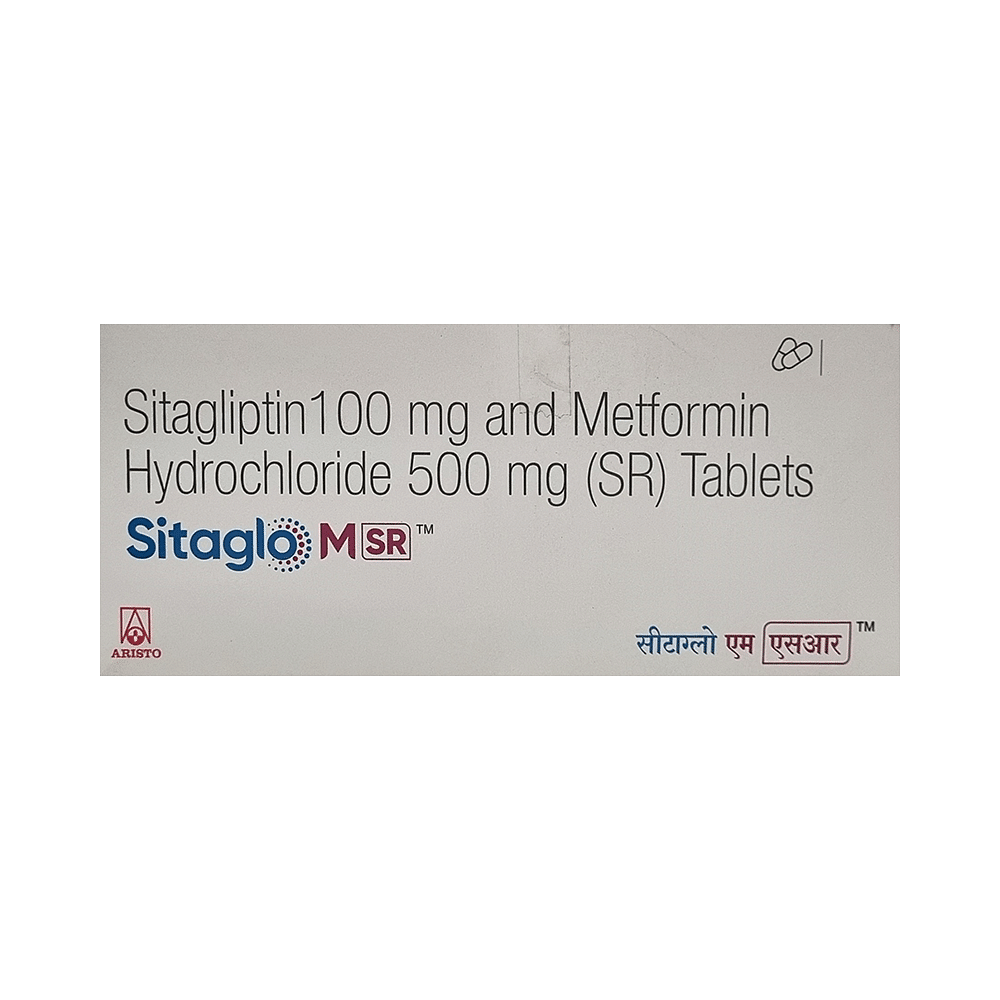
Sitaglo M 100mg/500mg Tablet SR

Sitahenz M OD LS 100mg/500mg Tablet SR
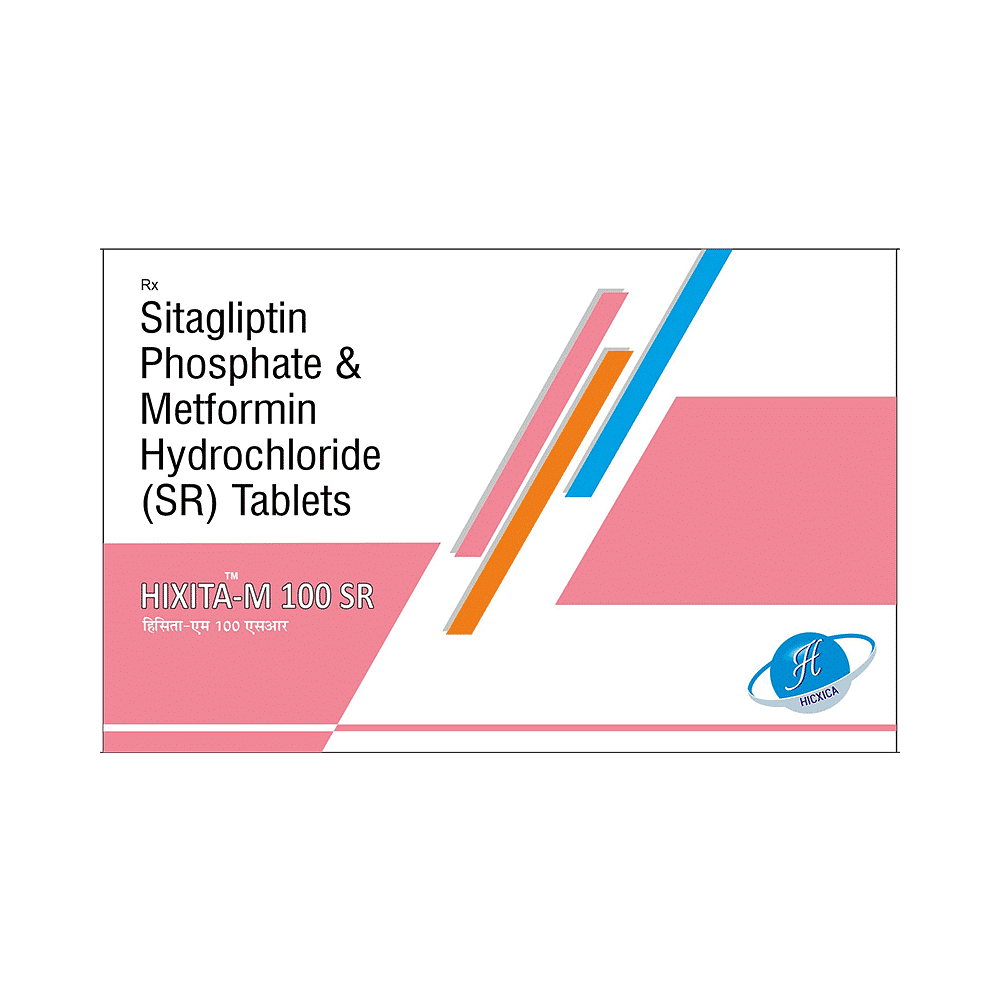
Hixita-M 100 SR Tablet
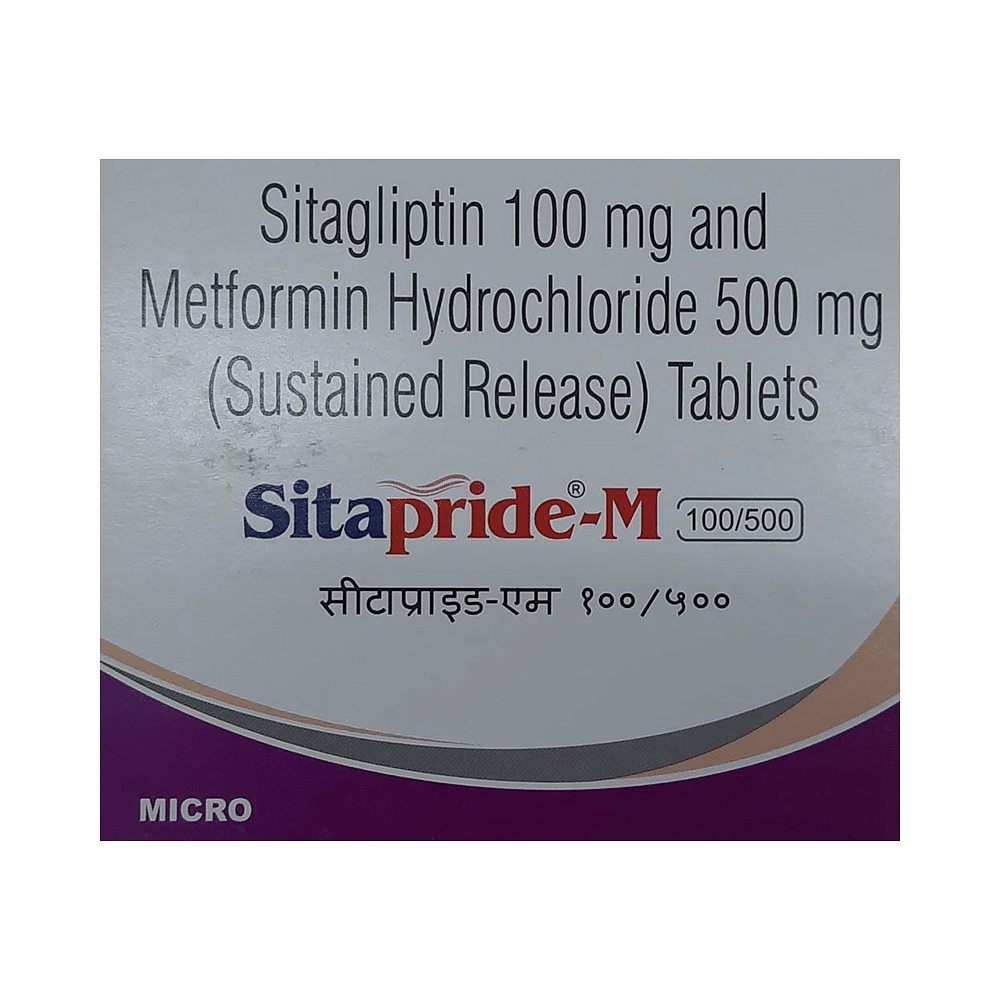
Sitapride-M 100/500 Tablet SR
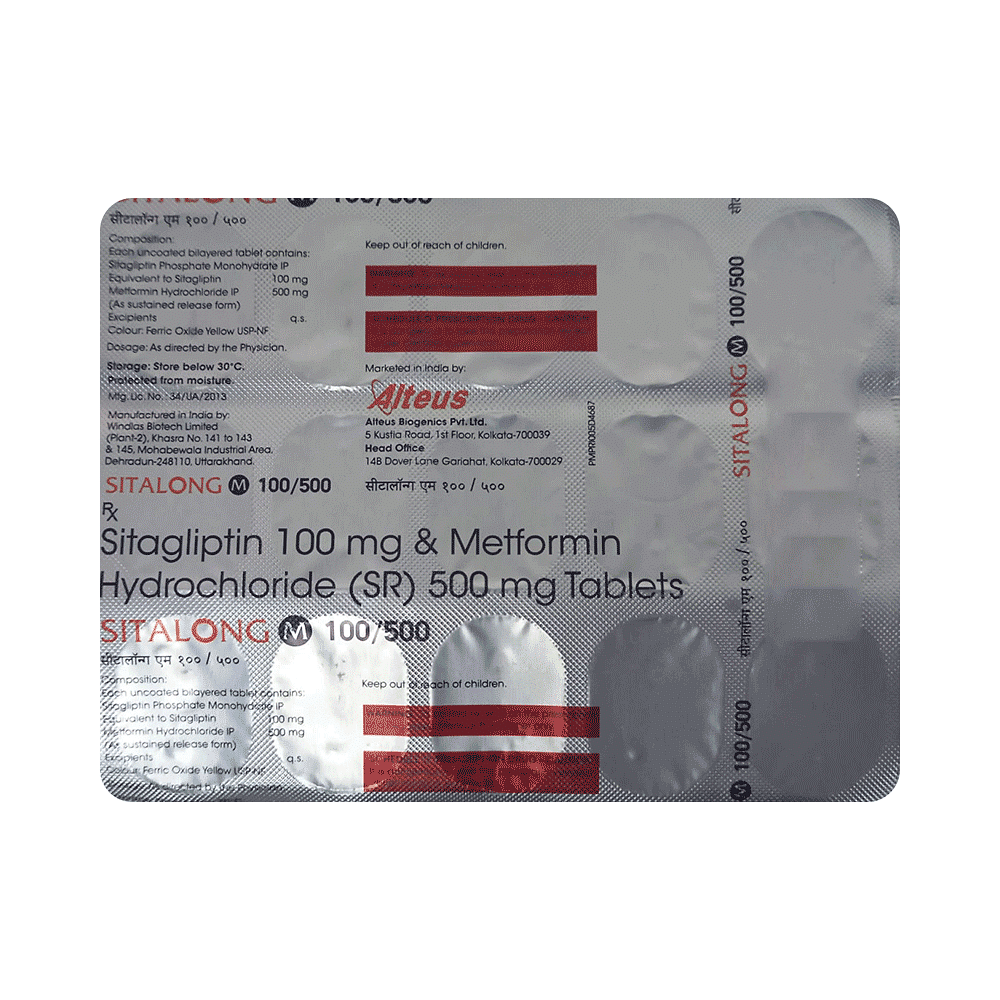
Sitalong M 100mg/500mg Tablet SR
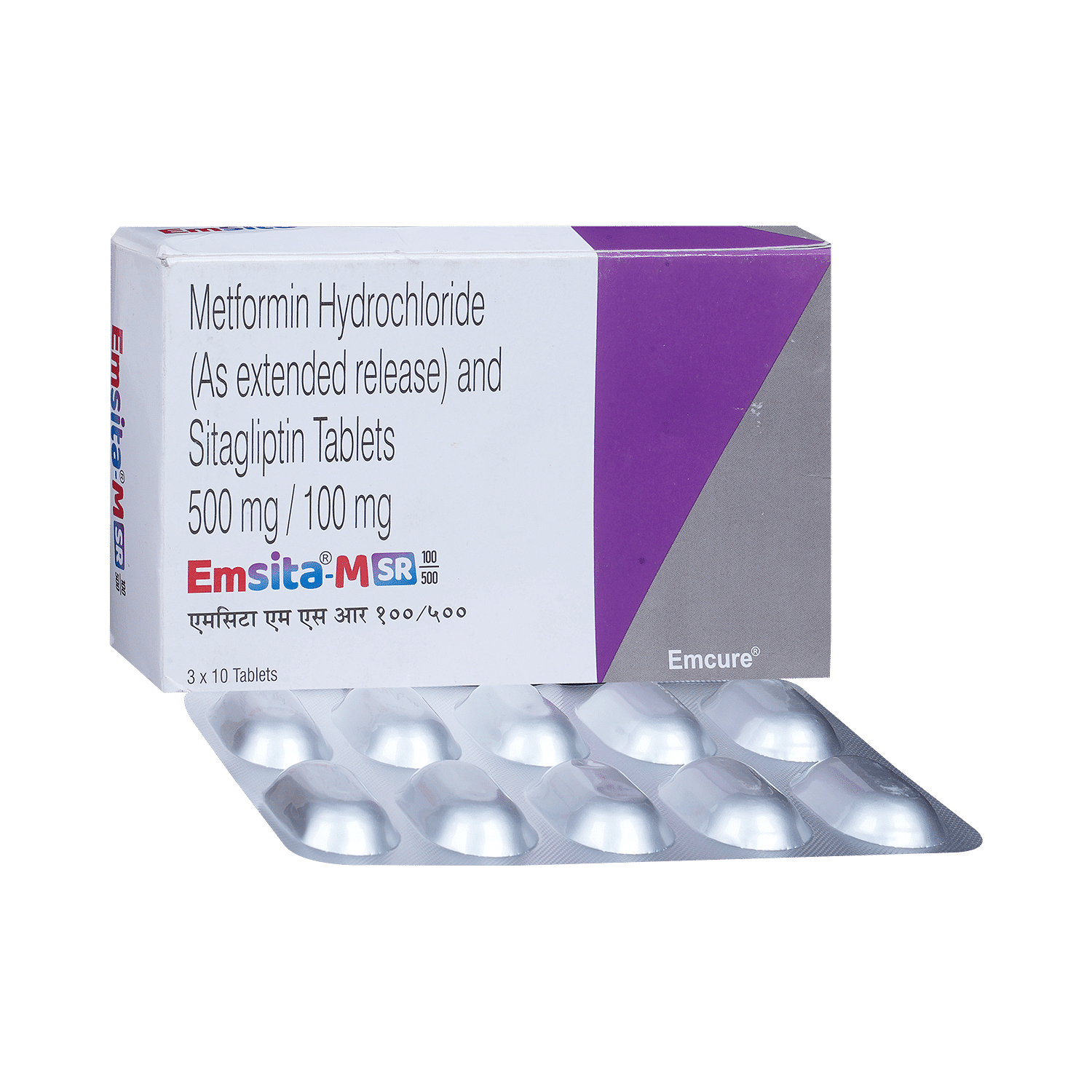
Emsita M 100mg/500mg Tablet SR

Sitaford M 100mg/500mg Tablet SR

Sitapride-M 1000/500 Tablet SR
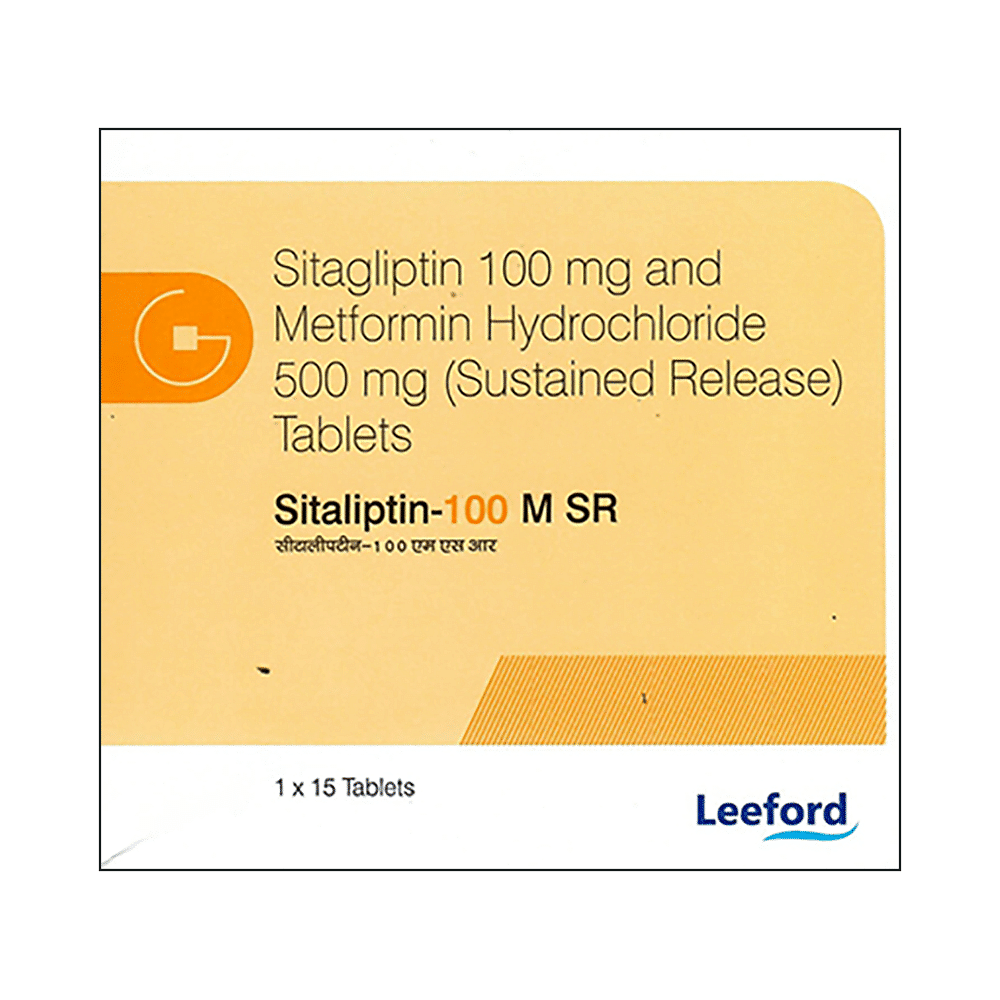
Sitaliptin 100 M SR Tablet


